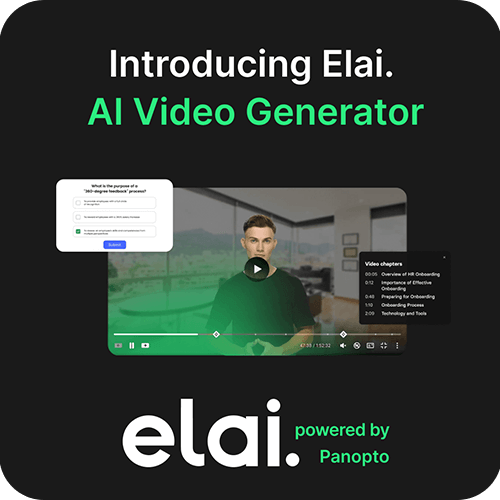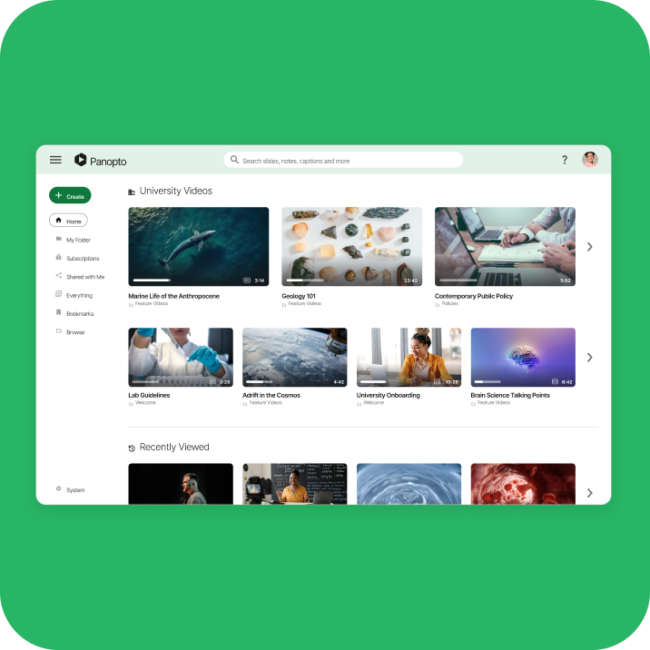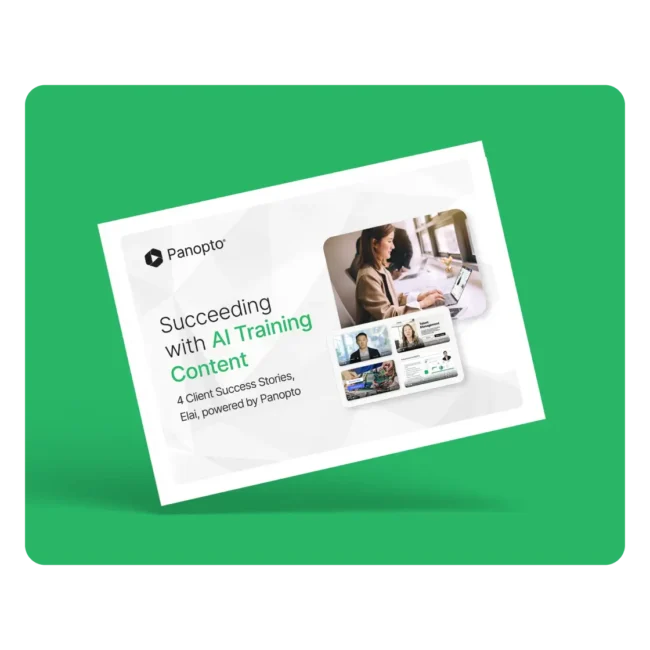- Academic Technology
3 in 4 Students Rely on Video for Revision
Q&A with Rowan South, Education Officer at Newcastle University’s Student Union
We spoke to Rowan South, Education Officer at Newcastle University’s Student Union to get insights into how Panopto is being used at the institution and the impact it is having on their students.
To begin with, can you tell us how Panopto is being used at Newcastle University?
Panopto is being used very extensively at Newcastle University – primarily for lecture recording. At Newcastle, we call Panopto ReCap and currently around 90% of all our lectures are recorded or ‘ReCapped’! There are also some disciplines that use Panopto in other ways. For instance, in our Medical School on the MBBS programme, students record themselves performing clinical procedures using the Panopto app so they can then review the video with an expert to analyse their performance of the task. As well as providing them with the opportunity to get advice and guidance from experienced medical staff, the students also use these videos to self-reflect and to revise in the run up to exams.
Focusing on lecture capture – what was the main reason lecture recording was implemented at the university?
Lecture capture was implemented well before my time at Newcastle, so the University has been convinced of the benefits of offering on-demand lectures to students for quite some time! The University believed, and continues to believe, that offering recorded lectures would support students with their learning process. Now that we’ve started doing more research into the use of lecture recordings amongst the student body, we have strong statistical evidence that it really does enhance student views of their learning experience.
Can you summarise some of the key findings of the research you’ve been doing with Newcastle students into their use of lecture recordings?
Our research covered views from the overall student body and also drilled more specifically into the experiences of students with disabilities to see if we could gain additional insights into the impact of technologies like Panopto for accessibility. Over 800 students responded to the survey in total, with responses from 55 disabled students.
Looking at the key results from the overall student body, we saw that 72% of students said they frequently or very frequently use ReCap as a revision tool. This was the main reason they wanted to use the system, rather than as a replacement for the face-to-face lecture. In fact, only 11.3% of the students surveyed said they would frequently or very frequently use ReCap as an alternative to attending lectures. We know that academics often fear that students will stop coming to lectures if lecture recording is rolled out, but this has not been our experience at Newcastle.
Looking at the key results for students with disabilities, not one student said ReCap was unimportant to their academic experience – they all felt it added value to their learning process. Perhaps the most powerful thing for me was reading the open text comments, where students talked very candidly about many of the challenges their disabilities sometimes posed to achieving their academic goals and the benefits technology could offer in alleviating those challenges. In fact, students with disabilities said they felt disadvantaged when ReCap was not provided. When it was, they were able to exceed even their own expectations and truly realise their potential.
Related Reading: The Student View On Lecture Capture
As student union rep for Education, what are your main aims for the use of Panopto going forward?
When I applied for the role of Education Officer, one of my manifesto points was to increase the use of ReCap across the University. It’s already at a very high level which is fantastic, but I want to push it even further and tackle those last pockets of resistance within the University.
My aim is that all students will have an equal opportunity to use lecture capture to support their learning. When I look at the positive impact it has had on the student learning experience, especially for students with disabilities, I am even more determined to get all our academic staff on board.
What do you think both academics and support staff can do to improve the student learning experience using video?
To put it simply, use it more often. I would like to see more staff experiment with video learning as I feel too many academics are afraid to stray from ‘the norm’. From experience, however, I know that some of the most rewarding learning opportunities arise when lecturers take a risk and try something new.
What would you say to academics who don’t want to record their lectures or use video?
Our student survey results speak for themselves – students don’t use lecture capture to miss lectures, they use it to revise and support their learning. The only time you should not be recording a lecture is when it’s not appropriate, i.e. in a discussion seminar that doesn’t focus on content. When lecture recording is genuinely not appropriate, then academics should provide adequate alternative resources to support students who may have missed the lecture (for any number of reasons) and allow them to effectively revise the content at a later date.



